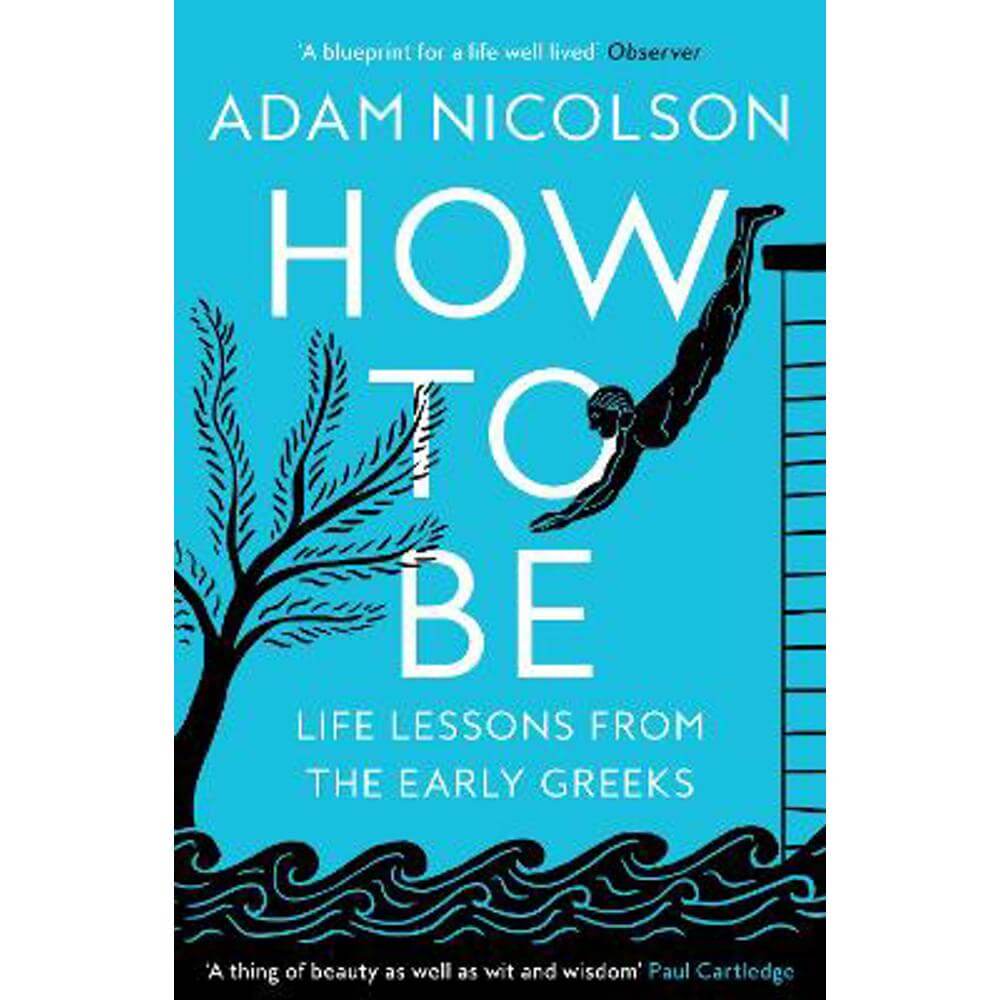
How to Be: Life Lessons from the Early Greeks (Paperback) - Adam Nicolson
Enter your postcode and we'll provide you with your delivery & collection options.
- Free Delivery on orders over £50*
- Free Same Day Click & Collect
- Delivery: In stock
Shop more...
A TIMES BOOK OF THE YEAR What is the nature of things? Must I think my own way through the world? What is justice? How can I be me? How should we treat each other?
A TIMES BOOK OF THE YEAR
What is the nature of things? Must I think my own way through the world? What is justice? How can I be me? How should we treat each other?
Before the Greeks, the idea of the world was dominated by god-kings and their priests, in a life ruled by imagined metaphysical monsters. 2,500 years ago, in a succession of small eastern Mediterranean harbour-cities, that way of thinking began to change. Men (and some women) decided to cast off mental subservience and apply their own worrying and thinking minds to the conundrums of life.
These great innovators shaped the beginnings of philosophy. Through the questioning voyager Odysseus, Homer explored how we might navigate our way through the world. Heraclitus in Ephesus was the first to consider the interrelatedness of things. Xenophanes of Colophon was the first champion of civility. In Lesbos, the Aegean island of Sappho and Alcaeus, the early lyric poets asked themselves 'How can I be true to myself?' In Samos, Pythagoras imagined an everlasting soul and took his ideas to Italy where they flowered again in surprising and radical forms.
Prize-winning and bestselling writer Adam Nicolson travels through this transforming world and asks what light these ancient thinkers can throw on our deepest preconceptions. Sparkling with maps, photographs and artwork, How to Be is a journey into the origins of Western thought.
Hugely formative ideas emerged in these harbour-cities: fluidity of mind, the search for coherence, a need for the just city, a recognition of the mutability of things, a belief in the reality of the ideal - all became the Greeks' legacy to the world.
Born out of a rough, dynamic-and often cruel- moment in human history, it was the dawn of enquiry, where these fundamental questions about self, city and cosmos, asked for the first time, became, as they remain, the unlikely bedrock of understanding.
About the Author
Adam Nicolson is a prize-winning writer of many books on history, nature and the countryside including The Sea is Not Made of Water, The Making of Poetry, Sea Room, God's Secretaries, The Gentry and the acclaimed The Mighty Dead. His 2017 book, Seabird's Cry was picked as Waterstones Book of the Month in Scotland and won the prestigious Wainwright Prize for nature writing and the Jeffries Prize. He is the winner of the Royal Society of Literature's Ondaatje Prize, the Somerset Maugham Award, the W.H. Heinemann Award and the British Topography Prize. He has written and presented many television series and lives on a farm in Sussex.
- Contributor:
- Adam Nicolson
- Imprint:
- William Collins
- Publisher:
- HarperCollins Publishers
- Release Date:
- 04 Jan 2024
- Number of Pages:
- 384
- Binding:
- Paperback / softback
- ISBN13:
- 9780008490829
Delivery
Options to suit you
At Jarrolds we want to ensure you get your order in the most convenient way for you, so we offer..
- Free standard delivery on most orders over £50*
- Express and Nominated options from £6.95*
- Free click and collect from our stores for many items
Help & Advice
Need extra help?
We're always happy to answer any questions or queries you might have, please get in touch using one of the methods below.
- Live chat
Monday to Friday (between 9.00am - 5.30pm) - Call us - 01603 660 661
- Email us here
Returns
How to return a purchase
At Jarrolds we want to ensure you're delighted with your order so if for any reason you are unhappy with your purchase, you can return most items to us in new and unused condition within 30 days of receiving them for a full refund*.